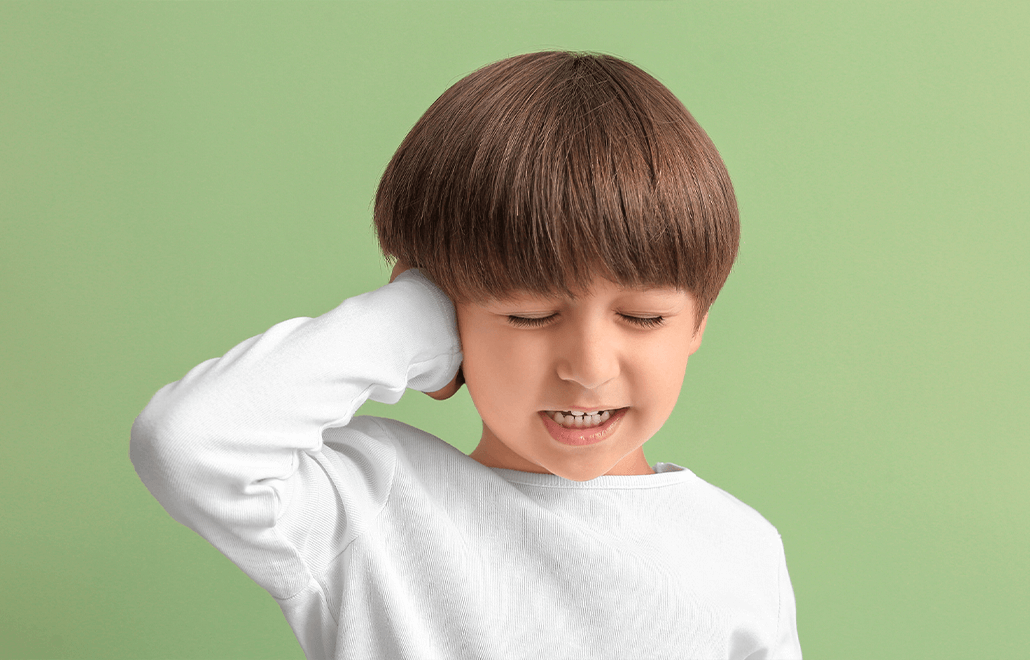
09 Apr What To Do When Your Child Has An Earache
3 min. readAs parents, few things can tug at our heartstrings like seeing our little ones in pain. One common ailment that can leave both children and parents feeling helpless is an earache. Whether it’s a sharp, stabbing pain or a persistent ache, earaches can be distressing for children and worrisome for parents. But fear not! In this blog, we’ll explore what causes earaches, how to recognize the symptoms, and most importantly, what you can do to provide relief for your child.
Understanding Earaches:
Before diving into remedies, it’s essential to understand what causes earaches in children. Earaches can stem from various factors, including ear infections, fluid buildup behind the eardrum, teething, or even pressure changes during air travel. Infections, particularly acute otitis media, are one of the most common culprits, often caused by bacteria or viruses.
Recognizing the Symptoms:
Recognizing the signs of an earache is the first step in providing relief for your child. Symptoms can vary depending on the underlying cause but may include:
• Ear pain or discomfort, especially when lying down
• Tugging or pulling at the ear
• Difficulty sleeping or irritability
• Fever
• Fluid drainage from the ear
• Reduced hearing or difficulty responding to sounds
If your child exhibits any of these symptoms, it’s essential to consult with your pediatrician for a proper diagnosis and treatment plan.
- Home Remedies for Relief:
- While professional medical advice is crucial for treating earaches, several home remedies can help alleviate your child’s discomfort in the meantime:
- Warm Compress: Applying a warm, moist compress to the affected ear can help soothe pain and reduce inflammation. Simply soak a clean cloth in warm water, wring out the excess moisture, and place it gently against your child’s ear for 10-15 minutes.
- Over-the-Counter Pain Relievers: Acetaminophen or ibuprofen can help relieve pain and reduce fever associated with earaches. Be sure to follow the recommended dosage for your child’s age and weight, and always consult with your pediatrician before administering any medication.
- Elevation: Elevating your child’s head while sleeping can help promote drainage and relieve pressure in the ear. Consider propping up the head of their bed or using an extra pillow to elevate their head slightly.
- Hydration: Encourage your child to stay hydrated by drinking plenty of fluids. Staying hydrated can help thin mucus and promote drainage, which may alleviate ear pain.
- Avoiding Irritants: Keep your child away from smoke and other irritants that can exacerbate ear pain or inflammation.
Seeking Professional Care:
While home remedies can provide temporary relief, it’s crucial to seek professional medical care if your child’s symptoms persist or worsen. Your pediatrician can conduct a thorough evaluation, diagnose the underlying cause of the earache, and recommend appropriate treatment options, such as antibiotics for bacterial infections or ear drops for pain relief.
Dealing with an earache can be challenging for both children and parents, but knowing how to recognize the symptoms and provide relief can make a significant difference. By following these tips and seeking professional medical care when needed, you can help your child feel more comfortable and get back to their happy, healthy selves in no time. If you have any concerns about your child’s ear health or need further assistance, don’t hesitate to reach out to us at Continuum Pediatrics. Our team of experienced pediatricians is here to provide compassionate care and support for your family’s well-being.

